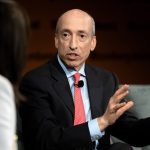TikTok CEO Shou Zi Chew was certain to face a blistering onslaught when he testified before the U.S. Congress.
And so as he prepared to face the powerful House Energy and Commerce Committee, Chew enlisted all the right people to help him get ready.
The Singaporean executive was prepared by former committee staffers and aides to Speaker Kevin McCarthy and former Speaker Nancy Pelosi. He received counsel from Andrew Wright, former director of legal policy for the Biden-Harris presidential transition and now a partner at the well-connected law firm K&L Gates. Ahead of the March 23 hearing, Chew scheduled meetings on the Hill with help from several former lawmakers, including Republican Jeff Denham, Democrat Bart Gordon, a former E&C member, and Joe Crowley, who was once a senior member of Democratic leadership.
But despite hiring a large group of savvy friends, Chew and his company failed to win over the panel. The sheer number of seasoned Washington operatives and firms in TikTok’s employ was no shield against a barrage of bipartisan denunciations.
TikTok’s battle for survival has become a vivid study in how a wealthy, foreign-owned corporation can use its financial might to build an impressive-looking network of influence — and also in the limitations of what lobbying can do to protect a company at the center of a geopolitical firestorm.
The campaign to save TikTok has been years in the making. A POLITICO investigation revealed an effort by TikTok and its parent company, ByteDance, dating back to at least 2018, long before concerns about TikTok’s Chinese ownership reached their current pitch. Interviews with more than two dozen people, including lobbyists and lawmakers, in the United States and Europe illuminated the architecture of a lobbying apparatus that has moved TikTok and its parent company closer to institutions of government, including European lawmakers, leaders of both American political parties and even the White House.
In 2019, one recruiter representing TikTok described the company’s goal in superheroic terms: The recruiter said it wanted to build a “Team of Avengers,” according to one Washington lobbyist approached for a job, who like a number of others was granted anonymity to discuss sensitive conversations with a powerful company.
TikTok has tried to overcome some firms’ reservations with a willingness to pay handsomely. The company recently approached a second Washington lobbyist who works for Big Tech clients and, according to the lobbyist, asked flatly: “How much will it take?” The lobbyist declined the overture.
But that approach has worked on others in Washington, London and Brussels, where the company is facing serious though seemingly less existential regulatory threats than in America.
In Washington alone, about three dozen people lobbied the federal government for ByteDance and TikTok in the last quarter of 2022, including former senators and House members, according to disclosure reports.
Across the Atlantic, TikTok’s public affairs staff includes just under 40 people in Europe, spread between cities including Brussels, London, Dublin, Paris and Milan. To lead its European strategy, the company in late 2019 recruited Theo Bertram, a former top lobbyist for Google and a veteran adviser to the U.K. prime ministers Tony Blair and Gordon Brown. In the fall of 2020, it appointed Caroline Greer, a seasoned lobbyist with experience lobbying for telecom companies and U.S. cloud firm Cloudflare, to head its Brussels operation.
And in Washington in recent months, the company finally succeeded in hiring SKDK, the public affairs firm that boasts an imposing Democratic alumni network, including senior figures in the Biden administration. The firm turned down an initial overture from TikTok during the 2020 campaign, according to two people familiar with the firm who explained that the decision was due to concerns around the company’s ties to China. Now, in a moment of existential danger for TikTok, SKDK has agreed to help with communications on policy matters.
The company has also enlisted Michael Leiter, the former director of the National Counterterrorism Center, as an important part of its legal team, according to four people familiar with the matter, including a TikTok spokesperson. Leiter, a partner at the law firm Skadden, is helping deal with the Committee on Foreign Investment in the United States, an interagency board that recently told TikTok that it must separate from ByteDance if it wanted to avert an American ban.
The app remains a pervasive presence in the political world, even as the prospect of a U.S. ban grows more realistic by the week. Indeed, the app is so popular that the White House has repeatedly acknowledged it as an unavoidable channel for political communications.
Ahead of Biden’s State of the Union address in February, White House senior adviser Anita Dunn pointed allies toward the app as an influential messaging tool during a “Women’s Community Engagement Update” hosted by the White House Office of Public Engagement. Dunn is a founding partner of SKDK and under the White House ethics policy, she is currently barred from participating in matters involving SKDK.
During the call, Dunn told participants that the White House wanted people to brandish the administration’s accomplishments on social media, according to two people on the call.
Of course the White House could not use TikTok, Dunn said. But she suggested that if people on the call were users of the app, then they should share parts of the president’s speech on TikTok.
Andrew Bates, a White House spokesperson, said there was nothing in Dunn’s remarks that did not reflect what the administration had openly maintained “for years: that we work with outside supporters to spread our message on the major social media platforms, including TikTok.”
The White House declined to address other questions about the administration and TikTok, including whether the administration believed TikTok was deliberately hiring advisers with links to the Biden operation and whether Dunn had been aware of SKDK’s decision to work for the embattled company.
The political tide is running against TikTok and ByteDance, both in the United States and in Europe. The company has not managed to assuage lawmakers’ worries that TikTok’s ownership could make American and European user data vulnerable to the Chinese Communist Party, a charge both the company and the Chinese government have denied. Last week, a Chinese Foreign Ministry spokesperson, Mao Ning, said the government had never asked companies to “collect or provide data, information or intelligence located abroad against local laws.”
Washington remains unconvinced. Momentum is building on Capitol Hill for legislation that could allow Biden to ban the app. In the European Union, company executives were blindsided by the news that TikTok had been banned from the work devices of EU Commission staff.
“At no point was it ever said that: ‘hey, we have this investigation going on, we’re looking into this, you might want to be aware, we’ll get in touch,’” Greer said.
In a statement to POLITICO, TikTok spokesperson Brooke Oberwetter said the company was “focused on educating lawmakers and stakeholders about our company and our service,” and pointed out that other tech companies spend far more on lobbying than TikTok does.
“We plan to continue briefing members of Congress about our company and about the details of our robust and comprehensive plans to address national security concerns,” she said. “We work to engage policymakers and stakeholders across the political spectrum on issues that are important to our business and to the diverse and vibrant community on our platform.”
In that endeavor, the company has one great advantage: the sheer popularity of its product.
A person familiar with TikTok’s strategy said that in conversations with Democrats on the Hill, the company has privately compared banning the app to “Prohibition,” the early 20th-century effort to outlaw alcohol — like TikTok, a highly addictive consumer product seen as dangerous by federal lawmakers. The ban on alcohol lasted about 14 years and generated enormous backlash from voters. Oberwetter disputed that this was an approved part of the company’s message.
But the implication seems clear enough: more than 150 million users in the U.S. enjoy TikTok’s hypnotic interface, and many could vote in 2024 when Biden and members of Congress are on the ballot.
TikTok and ByteDance have spent more than $16 million on federal lobbying in the U.S. since 2019, according to public disclosures. But the total that the company has expended to save its existence in the United States is almost certainly dramatically higher. That figure does not include lobbying at the state level, or the company’s spending on PR firms and in-house communications staff responding to its crisis.
TikTok and ByteDance’s registered lobbying spending is still dwarfed by that of Meta, a powerful competitor which has been lobbying in Washington for more than a decade. In 2022, TikTok and ByteDance spent just about $5.9 million compared with over $23 million for Meta (though both companies dwarf Twitter, which spent about $1.7 million).
But TikTok’s operation is only just reaching the rapid-growth phase. Getting its influence network to this point took years. The project began even before the app was called TikTok, when ByteDance realized it needed help from people who understood the inside of the government bodies that would soon be regulating it.
So the company set out on a recruitment drive in Washington. A job description from the time, obtained by POLITICO, noted that ByteDance was searching for someone who could “Source and manage outside counsels and lobbying firms,” among other responsibilities.
The qualifications for the job stated that “Experience in internet industry and regulatory bodies is preferred, e.g. EU Commission, FTC” and “Experience with NGOs, international organizations, industrial associations would be a big plus.”
In early 2019, TikTok brought on Eric Ebenstein as director of public policy. It may have been a telling choice for a company anticipating scrutiny of its ownership: Ebenstein previously worked for the Chinese drone manufacturer DJI and would have been familiar with some of the political challenges of operating in the United States. Before and after Ebenstein’s departure, DJI has faced criticism from U.S. officials, including allegations that it took money from the Chinese government and that its drones could be tools for spying. DJI has denied taking direct government funding and said it could not control how customers use its products.
But Ebenstein was only the start. In 2019, the company intensified its outreach to staffers across the tech sector, doing a combination of recruitment pitches and conversations that seemed more like intelligence-gathering. At a moment when other social media companies, including Google and Facebook, were many years into struggling with the federal government, ByteDance was doing research of a more basic kind, according to the first lobbyist, who heard the “Team of Avengers” sales pitch at the time.
“They were looking to understand how American tech companies were organized, what sort of consultants they hired, who controlled those consultants, how that reported up into the executive structure,” said the Washington lobbyist, who kept contemporaneous notes of at least one of the person’s conversations with the company.
In 2019, it was looking for someone who could “Build strong relationships with government officials,” according to the lobbyist’s notes of a conversation with a recruiter.
A series of high-profile hires showed the company was making headway. In 2020, it enlisted Michael Beckerman, a former congressional aide who led the Internet Association trade group, to take a leading role in building a Washington influence machine. The company also hired Crossroads Strategies, a D.C.-based bipartisan firm. Former senators Trent Lott, a Republican who was the Senate majority leader, and John Breaux, a conservative Democrat from Louisiana, would make the company’s case, among others. The firm has been paid $910,000 since 2020, according to public records.
With the 2020 election approaching, the company seemed to want to hedge its bets on the outcome. CFIUS had reportedly begun an investigation into the company. Early that year, ByteDance succeeded in hiring David Urban, a prominent Republican lobbyist who was also an adviser to Donald Trump’s 2020 reelection campaign. Urban first worked as an outside consultant and then later as an executive vice president at ByteDance. (He is now an outside consultant again.)
But the company needed Democratic help, too, since the party figured to have significant power on the Hill after 2020 even if Trump were reelected.
Fears about TikTok’s foreign ownership were growing, not receding, as the campaign advanced. Not only did SKDK, the Biden campaign-linked firm, reject an overture to work for TikTok, but in the summer of 2020 it instructed employees to delete the app from their phones as a security precaution. Memories of foreign cyber-intrusion in the 2016 campaign, when Russian hackers breached the Democratic National Committee, were still fresh in the minds of Democratic campaign operatives.
Around 2020, the second Washington lobbyist, who was then in touch with the company, said that TikTok was in search of someone who could push back on the narrative that they were collecting data and giving it to China.
In 2021, a third Washington lobbyist, who is a Democrat, recalled being approached by a TikTok consultant with the message that the company was willing to put a lot of money on the table for Democratic talent.
Since the 2020 presidential election, TikTok has had considerably more success enlisting lobbyists and firms with close ties to the Democratic Party. In addition to SKDK’s recent about-face decision to work for TikTok, the company has enlisted FGS Global, another PR agency with ties to Biden’s political network. It also retained the public relations giant Edelman, a powerhouse firm with relationships across both parties. Jamal Brown, former national press secretary to the Biden campaign who more recently was deputy press secretary at the Pentagon, is now a company spokesperson.
Many of those working for TikTok and ByteDance, including SKDK, FGS, Edelman, Crowley, Denham, Gordon, and Leiter, the former counterterrorism official, did not respond to inquiries or declined to comment on the record.
ByteDance’s lavish spending goes beyond generous salaries and retainer fees for lobbyists. It also extends to schmoozing, particularly in Europe where there is less fear among politicians about being seen as cozy with Chinese companies.
Indeed, in Brussels, lawmakers in the European Parliament and officials of the EU Commission, the EU’s executive arm, describe TikTok’s team as articulate and ingratiating, and careful to strike a more conciliatory tone than the representatives of American companies like Twitter, Facebook and Google. They had an agenda to push, but they would not make aggressive threats about EU laws like the Digital Services Act.
“Their lobbying was not confrontational compared to American companies,” one official said. “They always said they wanted to cooperate.”
In Europe, at least, TikTok has used the aversion toward American Big Tech to its advantage. Bertram, the vice president of government relations and public policy for Europe, told POLITICO the question of TikTok’s ownership “feels like a red herring … As Europeans, I don’t think we share the belief that every big company needs to be a Silicon Valley tech company.”
Earlier this year, Chew, the TikTok CEO, appeared at the World Economic Forum in Davos and toured Brussels to meet with European policymakers. In Belgium, he met with around two dozen European lawmakers and policy officials from the EU Commission in a closed-door session at De Warande, an elite members-only club located near Belgium’s Royal Palace and the American embassy. He snapped pictures with tech-focused politicians like Dita Charanzová, a vice president of the European parliament, and Andreas Schwab, a German member who negotiated the Digital Markets Act, a law to limit the market power of large tech companies.
The TikTok executive tried to send a reassuring message at the event. Even as the company has confronted growing political hostility in the U.S., many European lawmakers have continued to see the company in less adversarial terms — as a social media goliath that needs to be regulated, but perhaps not a uniquely problematic one.
Chew was “very clear about the strong concern in the U.S. about China,” said Schwab, adding: “They wanted to explain a bit about their legal structure, their precaution measures, knowing that there might still be doubts.”
After doing a speech about TikTok’s business model, the CEO wanted to listen, said Charanzová. “He wanted to understand concerns in Europe.”
Chew’s mission of reassurance seemed to go well, or at least that was the impression of TikTok’s lobbyists in Europe.
The company was stunned when scarcely a month later the EU Commission banned TikTok from the government phones of commission employees. The measure sparked a domino-like effect across Brussels where the EU Council — the institution representing the 27 EU governments — and the European Parliament quickly followed suit, along with national governments including those of Belgium and the United Kingdom.
TikTok’s team immediately contacted the EU institutions to try to understand what had happened and hopefully to reverse the policy. The company didn’t hear anything for several weeks before the Commission said in late March it had sent the company a letter and was open to a meeting. At the end of the month the device ban was still in place.
“We’ve been trying to reach out to the institutions to understand what the problem is and to see what we can do to mitigate it and to tell our story, as well as hopefully to get unbanned, since it has been presented as a temporary suspension,” said Greer, the Brussels lobbyist.
To address those concerns, the company unveiled a European plan that had been in the works for several months to secure European users’ data. TikTok said it would operate in the coming years three data servers in Ireland and Norway and work with a European security company to audit cybersecurity and data protection controls under “Project Clover.” The company sent its top executives to tour European capitals such as London, Paris and the Hague to present the plan, which mirrors a similar idea presented in the U.S. and branded “Project Texas.”
“We can’t control the geopolitical situation, but we can continue with the work that we have been doing to help bridge that trust deficit, if it’s there,” said Greer. “We’re not running away from this.”
But TikTok doesn’t seem to have an option. And the power of its lobbying, PR and legal operations is being put to the test in other, even more strenuous ways.
The Irish data protection authority is set to decide on its investigation on TikTok’s data transfers to China. TikTok will also have to open up about its recommendation algorithm and show the EU Commission how it limits a range of problematic issues like cyberbullying, disinformation and illegal content or face multi-million euro fines under the Digital Services Act as soon as this summer. The EU Commission could potentially order a large fine or a temporary banning of the app if it repeatedly and seriously infringes on its obligations.
For now, the company is projecting confidence that it can halt any broader ban in Europe — one that would disrupt its relationship with consumers and not just government employees. Bertram said using the app was a matter of “freedom of speech for the public.”
“You’d have to have a very strong legal basis to ban any app in any country in Europe,” he said in an interview.
In Washington, the company is trying to meet with a wide range of lawmakers to head off legislative action that would ban the app. But TikTok’s core strategy is in a precarious state. The company had been arguing that Congress should defer to the Biden administration and let the regulatory process take its course — a way of sapping momentum for potentially stronger congressional action.
But the CFIUS decree insisting on a separation between TikTok and its Chinese owners made plain that punting the issue to the executive branch would not necessarily guarantee gentler results for the company.
The company’s best hope in Washington at this point may be drumming up enough indignation from its vast horde of users to give pause to elected officials — maybe even including the president — about cracking down on a cherished app in the run-up to a national election. And there are Democrats who sincerely worry about enraging the young voters the party depends on.
Rep. Jamaal Bowman of New York, a progressive Democrat who opposes a TikTok ban, told reporters last week that the seemed driven by xenophobia and favoritism toward American tech giants. But he noted the political context, too: “Young voters were the reason why we were able to keep things decent, like almost even in 2022, in terms of the House.”
Those arguments have not resonated with the lawmakers most determined to eliminate the app from American life. When TikTok’s Washington team met recently with the leaders of the new House select committee on U.S.-China relations, it made no headway in convincing them that there were reasonable precautions it could take to protect Americans’ data from the Chinese Communist Party.
“The CCP ultimately having access to user data and control of algorithms and potentially content on the platform is deeply problematic,” said Rep. Raja Krishnamoorthi of Illinois, a Democrat who has introduced legislation to ban TikTok.
The company is still looking for more help, including a head of policy communications in Brussels. In the U.S., TikTok is recruiting public policy managers and ByteDance is currently accepting applications for a “Global Head of Policy Communications.” The person in that role will be charged with developing communications strategy for both policymakers and users. The gig, focused on government relations, requires “significant experience” on communications and with complicated regulatory, legislative, and policy matters.
That new head of policy communications must also have “significant experience” with “crisis issues.”







